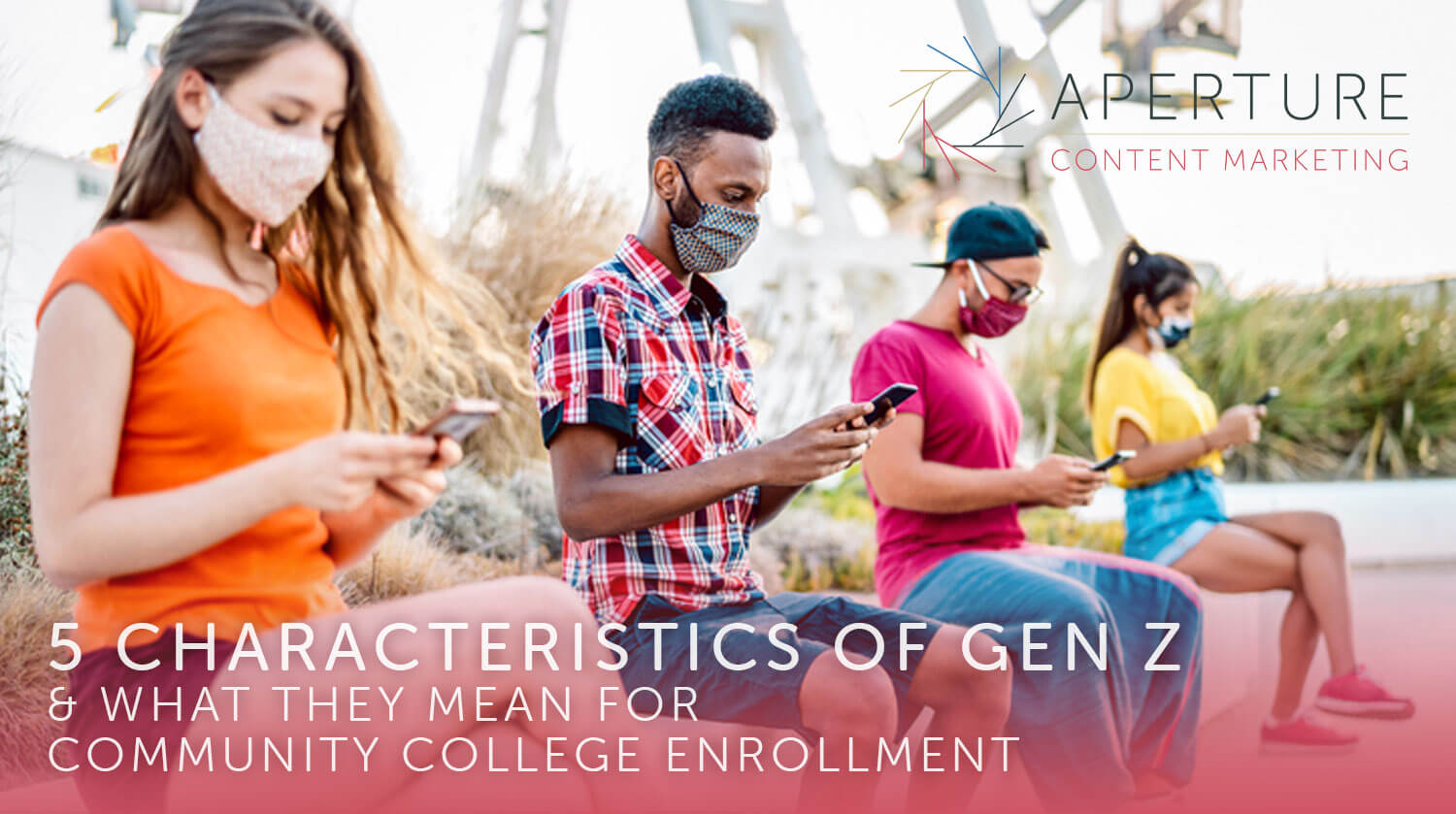Reach the newest college generation with thoughtful marketing strategies.
College plans for the younger generation have been upended. Many are rethinking even long-planned career choices. The pandemic has shifted the narrative, making community colleges not only a wise economic choice but a safer and more attractive option.
Young potential students are concerned about their health, safety and financial security. Large numbers are considering whether a four-year college is worth the expense without the traditional “college experience” they were expecting. Frankly, with so many colleges moving to online learning, four-year institutions—even “dream schools”–suddenly have a lot more in common with your local community college!
Community colleges have an opportunity to win a record number of students this semester. It is essential that your college makes a strong case to graduating seniors, and, just as critically, that you reach these youth on the media platforms where they spend their time.
What community colleges need to know about Gen Z
Graduating seniors are part of “Generation Z,” the youngest generation which includes everyone born after 1996. “Gen Z” has many defining characteristics which are critical for community colleges to understand when determining an enrollment marketing plan this fall:
1. Gen Z is the most connected generation in history.
In fact, 95% of 13- to 17-year-olds have access to a smartphone, and a similar share (97%) use at least one of seven major online platforms. This generation of young people, by some estimates, sees almost 5,000 ads a day! These “digital natives” are experts at sifting through and ignoring “gimmicky” content.
Takeaway: If you want to reach Gen Z, you need a content marketing strategy. This generation is looking for authentic and valuable content with well-researched information. Community Colleges should concentrate on providing high-quality content that answers the questions their students are asking (or should be asking!).
2. Gen Z is worried about finances.
Two-thirds (67%) of Generation Z students indicated that their top concern is being able to afford college, according to a 2019 study. Over 60% believe it’s important for colleges to teach entrepreneurship and 85% believe they should learn about financial literacy in college.
Takeaway: Choosing a community college rather than a four-year school translates into tens of thousands of dollars in savings! This is a major consideration for Gen Z. And on top of the lower price tag, community colleges specialize in programs that are proven to lead to high paying, reliable jobs. Put these programs front and center in your marketing plan! Also, be sure to highlight your school’s financial aid options in your advertising.
3. Gen Z is the most ethnically diverse generation in recent history.
22% of Gen Z has at least one immigrant parent. About one-third of Gen Z lives in a single-parent household. For the younger generation, it is essential that their academic environment is focused on diversity, equality, and globally-minded issues.
Takeaway: It is important that your content reflects the diverse nature of your students and potential students. Develop content which highlights your welcoming approach and the varied types of students and programs at your institution.
4. Gen Z is worried about their own health and the health of their loved ones.
The current pandemic has dramatically shifted the outlook of potential students. They are worried about going away to crowded dorms where they will not be allowed to socialize in meaningful ways. On top of the current crisis, students and youth are dealing with a mental health crisis of unprecedented dimensions. The latest APA Stress in America reveals that this generation is significantly more likely (27%) than other generations to report their mental health as fair or poor. They cite mental health concerns about twice as often as Millennials (15%) and Gen X (13%).
Takeaway: Community Colleges work hard to be pillars of progress and stability within their communities. Your college can play a critical role in providing opportunities and support for individuals, young and old, to achieve their personal and professional goals. Work on developing content aimed at community stakeholders which highlights your college’s contribution to your locale.
5. Gen Z is passionate about making the world a better place.
This generation is acutely aware of environmental, political, and socio-economic problems that societies face today. And according to a study by The National Retail Federation and IBM, they’re “more serious about” these big societal issues than any other generation.
Takeaway: Now is the time to show this generation that your community college offers programs that are meaningful and will help them serve others. Explain that your programs are portable and can lead to careers all over the country and even the world. For more information on these topics, read our related posts, Allied Healthcare Professionals: Heroes of our time and How to “Stay local and think global!”
Reaching Gen Z
Content marketing is successful because it directly addresses student needs and provides in-depth answers. Members of Gen Z are masters of seeing through flashy slogans and advertising gimmicks. They are looking for quality content and they know it when they see it.
Using content marketing to tackle concerns head-on, community colleges are able to make a powerful case for their programs. Multi-channel content marketing frees schools from micro-managing their outreach so that they can address any potential stumbling blocks and questions from potential students.
It is also important to have a strategic conception for the deployment of content across platforms. Young people aged 16 to 24 spent an average of seven hours per day online in 2019. Three of these hours were spent exclusively on social media, according to GlobalWebIndex. Different types of content perform better or worse on the various platforms.
At Aperture, we are content strategy experts. Get in touch with us today for a consultation.


